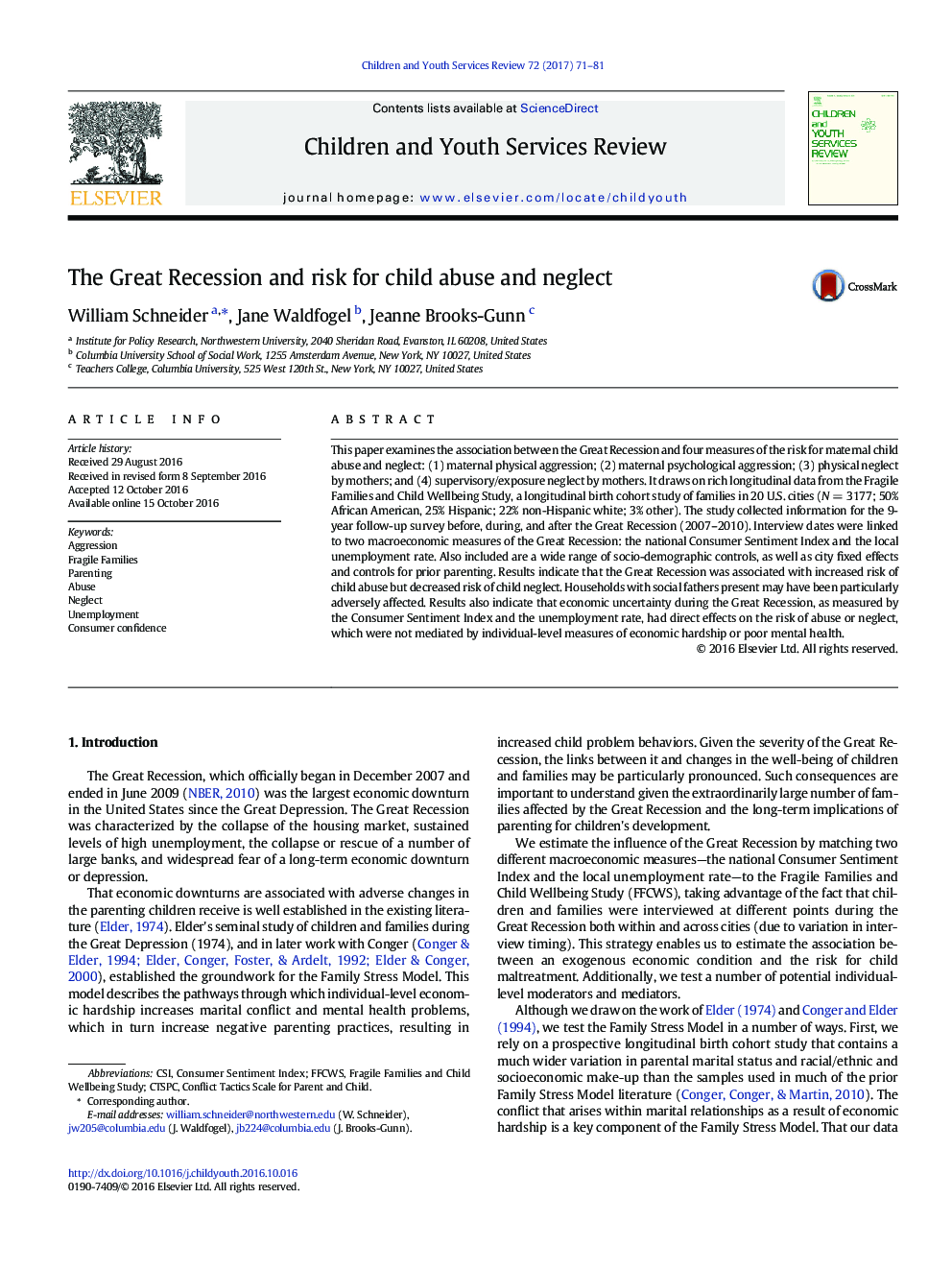| کد مقاله | کد نشریه | سال انتشار | مقاله انگلیسی | نسخه تمام متن |
|---|---|---|---|---|
| 4936324 | 1434437 | 2017 | 11 صفحه PDF | دانلود رایگان |
- The Great Recession was associated with increased risk for child abuse, particularly among households with a social father.
- Widespread economic uncertainty may have increased maternal harsh parenting during the Great Recession.
- The Great Recession was associated with decreased risk for child neglect, which may be more influenced by individual hardship.
- Macroeconomic measures of uncertainty may be less biased in associations between hardship and risk for child maltreatment.
This paper examines the association between the Great Recession and four measures of the risk for maternal child abuse and neglect: (1) maternal physical aggression; (2) maternal psychological aggression; (3) physical neglect by mothers; and (4) supervisory/exposure neglect by mothers. It draws on rich longitudinal data from the Fragile Families and Child Wellbeing Study, a longitudinal birth cohort study of families in 20 U.S. cities (NÂ =Â 3177; 50% African American, 25% Hispanic; 22% non-Hispanic white; 3% other). The study collected information for the 9-year follow-up survey before, during, and after the Great Recession (2007-2010). Interview dates were linked to two macroeconomic measures of the Great Recession: the national Consumer Sentiment Index and the local unemployment rate. Also included are a wide range of socio-demographic controls, as well as city fixed effects and controls for prior parenting. Results indicate that the Great Recession was associated with increased risk of child abuse but decreased risk of child neglect. Households with social fathers present may have been particularly adversely affected. Results also indicate that economic uncertainty during the Great Recession, as measured by the Consumer Sentiment Index and the unemployment rate, had direct effects on the risk of abuse or neglect, which were not mediated by individual-level measures of economic hardship or poor mental health.
Journal: Children and Youth Services Review - Volume 72, January 2017, Pages 71-81
